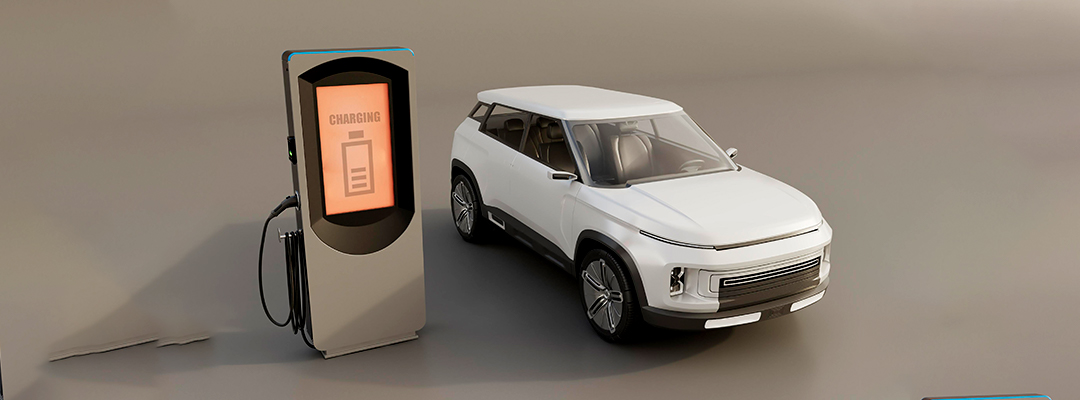Blogs
Services
Electric Cars - A Rapidly Emerging Alternative To Petrol Cars In 2022
Dec. 26, 2022

The electric automobile market in India is growing exponentially and is expected to be the third-largest in the world by 2026. It is also predicted that the electric car market would constitute 12% of the overall passenger car market by FY 2026. Incidentally, the CAGR of the electric car market is estimated to grow by a whopping 153 per cent between FY21 and FY26.
Between October 2019 and October 2021, petrol prices have
increased by an astounding 46% in India. Due to the rising prices of
conventional fuel as well as environmental concerns, Indian car owners have
started to seriously concur ownersng electric cars. Leading automobile
manufacturers like Tata, Volvo, MG and BMW have unveiled stunning electric,
cars.
So will electric cars in India garner a higher fan following
than petrol vehicles?
Let us begin by looking at the pros of Electric Cars in India
Less Pollution
Electric vehicles emit zero carbon on the go, which reduces air
pollution. As more people switch to owning electric cars, the environment keeps
getting cleaner. Some emissions might occur at the power plant to produce
electricity, but it is far lesser than general fuel.
Better Efficiency
Traditional cars cannot convert more than 40% of energy to move
the vehicle, while electric cars usually convert about 85%. Not only this,
but it is also smooth to operate and quieter compared to other cars. This
results in greater efficiency and an overall delightful driving experience.
Government Benefits
The Indian government incentivizes you when you decide to buy an
electric car instead of a petrol car. According to section 80EEB, you are
entitled to a deduction of Rs. 1.5 lakhs for interest paid on an electric
vehicle loan. In fact, the budget 2021 proposal says that personal vehicles
will have to pay 'green tax' for which electric vehicles will be exempt. In
addition to this, electric cars in India can get away with road tax and
registration expenses in some states.
Lower Maintenance Cost
Owning a car comes with recurring maintenance, which is not
cheap. This is because traditional cars have many moving parts, which results
in higher chances of the car needing repairs. On average, it costs about Rs.
7000-10000 to maintain your petrol/diesel car. On the other hand, electric cars
do not have many moving parts and thus require less maintenance. It costs about
half the money to maintain electric cars in India compared to petrol cars.
Lower Fuel Cost
The rates of petrol and diesel are rising exponentially with
time to the point where it has become a significant expense for a lot of Indian
households. Electric vehicles use electricity as a fuel which is much cheaper
than conventional fuels. The cost reduces even further if you charge it at one
of the public charging stations.
Now that we know owning electric cars requires lower
maintenance, has a lower fuel cost, and also cleans up the environment, should
you go for it? Well, you haven't looked at the other side yet.
Let us discuss some of the cons of owning electric cars in
India:
Cons of Electric Cars in India
Lack of Charging Stations
The number of electric vehicle charging stations across the
country is less than 500. While it may seem like a decent number, it is far
lesser than about 60,799 petrol pumps. Though the government aims to set up
more than 20,000 EV charging stations across the country, it will take a few
years to have enough stations so that you never have to worry about your
battery draining. If you decide to get one now, your home is the only reliable
place where you can charge your vehicle. You might be able to make an
outstation trip depending on your city.
Longer Charging Cycles
Unlike petrol/diesel, which takes 2-5 minutes to fill your tank,
charging electric cars in India can take anywhere from 6 to 8 hours to charge
fully. Even with speedy charging and large batteries, it can take up to an hour
to charge your battery significantly. This will require you to follow a rigid
charging schedule if you want to use it on a regular basis. Realizing that regularly charge at the last minute can leave you frustrated and affect your plans.
Higher Upfront Cost
Although using electric cars in India comes with a lower fuel
cost, they are generally more expensive compared to similar petrol/diesel cars.
While it is still more affordable in the long run, some people prefer getting a
bigger petrol car than a smaller electric car.
Fewer Choices
Unlike petrol/diesel cars, there are only a handful of electric
cars to choose from in 2021. Although the government is encouraging companies
to produce more models, it will take some time for you to have a good number of
options to choose from.
The Future of Electric Cars in India
It is projected that by 2030, electric vehicles will help save
over $60 billion of conventional fuel costs and reduce over 1 gigatonne of
carbon emissions thus creating an energy-efficient transportation sector.
Electric cars are not only safe for the environment but also pocket-friendly
and comfortable to drive in the long run. Considering this, the hype is totally
justified. It is not far when most vehicles you see on the road will be powered
by electricity.
Should you buy an electric automobile in 2022?
It's not a simple yes or no question. You need to factor in a lot of things like your budget, state of residence, use case, etc. For example, if you live in a place with enough charging stations and would like to enjoy government incentives, buying an electric automobile in 2021 might be worth it for now. However, if you are someone who likes to choose from several different companies and car models, you might want to get a petrol/diesel car instead. Analyze your situation and needs, and make a sound decision.
The electric automobile market in India is growing exponentially and is expected to be the third-largest in the world by 2026.
